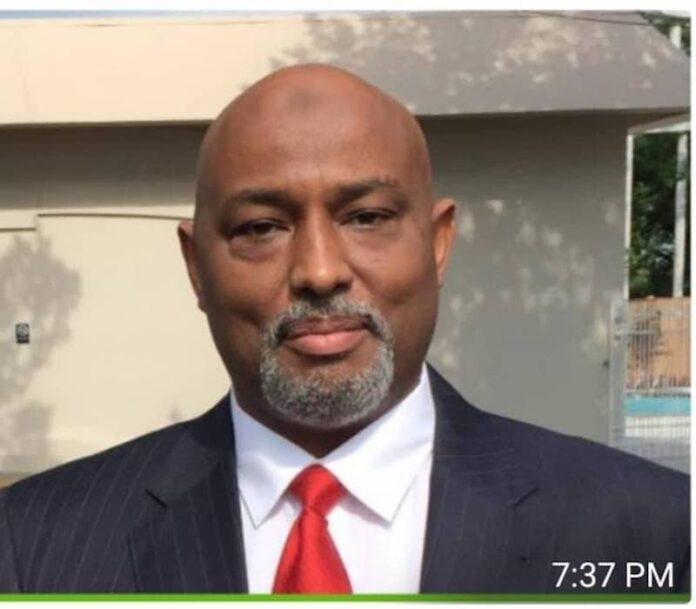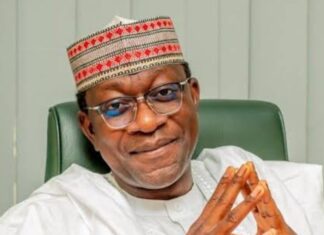By Uzor Odigbo
Standards Organisation of Nigeria(SON) said it has a Conformity Assessment Programme (SONCAP) for the certification of products and services outside Nigeria.
This was disclosed by the director general of the agency Mallam Farouk Salim who spoke on the topic SON’s view on the ‘Emerging Blue Economy Project’ at the Association of Maritime Journalist of Nigeria (AMJON) training workshop on Thursday in Lagos.
Salim who was represented at the workshop by one the agency’s directors Benedict Preake said the products from the country of supply are inspected by SON ‘s International Accreditation Firm ( IAF) for fitness to use.
According to him, “Samples are collected and tested in SON approved laboratory. If inspection and results meet the relevant Standards requirements, a Certificate of Conformity is issued by IAF and later such product are SON issued Product Certificate for the consignment to enable the importer get his Form M from any of the Nigerian banks”
During departure of the goods to Nigeria, Farouk said, the products are retested and if they comply with the relevant requirements, SONCAP Certificate is issued for clearance at the Customs territory.
“For locally manufactured products for either local consumption and if to be exported, the product shall be subjected to Mandatory Conformity Assessment Programme (MANCAP). Here, SON Officials undertake Factory inspection visit to the factory and carry out Standardisation and Quality Assurance activities starting from raw materials to the finished products”
He noted that On-the-spot -test is carried on the products, while samples are drawn for corroborative test in SON approved Laboratory. If the requirements are met, MANCAP Certificate, which is revalidated after three years is issued on that product. With this Standard procedure, the product can sold in both locally and the ECOWAS sub-region.
On the Product- type Certification; He said SON Officials undertake Factory Inspection visit to the Company that wants to export its products.
The facilities and the Consignment are inspected. The products are sampled and tested in line with the relevant Standard requirements of the Country of export(demand). If all the requirements are met, a Certificate of Conformity is issued on that Consignment only. Thus all these Standard procedures help to check the influx of fake, counterfeited and substandard products, which may come through the Blue Economy project.
2. FISHERIES; SON has also developed Standard for fishery business in Nigeria from which Standard procedure was lifted. The Standard discusses the type of fish feed to be given to fish, Management of effluents to preserve aquatic life and increase the Country’s Gross Domestic Product ( GDP) among others. NIS ARS 02: 2018 Fisheries. Sustainable & Eco Labeling Requirements, NIS 1122:2020 Standards for fish feed concentrate, 1123: 2020 Standard for fish feed Premix.
3. Alternative Wind & Coastal Wave Power Sources(Renewable energy); SON has also adopted Standards for Renewable energy. Strict adherence to the procedures will help to control the amount of heat generated thus protecting the depletion of the Ozone Layer and its attendant heat. Among others, NIS IEC TS 62257-3: 2020 Recommendation for renewable Energy and Hybrid System for Rural Electrification.
4. Tourism; SON have developed Standard for Hotel and Serviced Accommodation, which prescribes Standard requirements for hotels and serviced accommodation as well as comfort and security to guests. NIS ISO 18513 2018 (Tourism Services – Hotels and other types of tourism accommodation).
5. Climate Change (Carbon sink); SON has Standard, which consist of Standard procedures that regulates products that emit dangerous gases into the atmosphere example air conditioners, generators, Solid Biomass clean Cookstoves etc. Through this Standards implementation, depletion of Ozone Layer is reduced, which causes serious Climatic Change is reduced. NIS 1000-1: 2018 (Solid Biomass Clean Cookstove standard)
6. Waste Management; Furthermore, SON has Standard procedure in the Management of waste and effluents that can cause air, water and land pollution. This Standard helps to protect terrestrial animals and aquatic life from death and extinction. NIS 581: 2008 Environment.
Farouk concluded that Nigeria’s Blue Economy Project could help the country continue to diversify the economy and generate far larger revenues than it currently exists, and the call for the use of Standard Operating Procedures for the effective implementation of the Blue Economy project through Standardization cant not be more timely.
He added that the Standards Organisation of Nigeria(SON) has the human, technical, procedural capacity for immediate deployment when called upon, hence SON should be seen as being central to achieving the aims and objectives of the Blue Economy Project. Also, SON is not relenting in the fight against substandard, adulterated and fake products whether imported or locally made in the Country.













